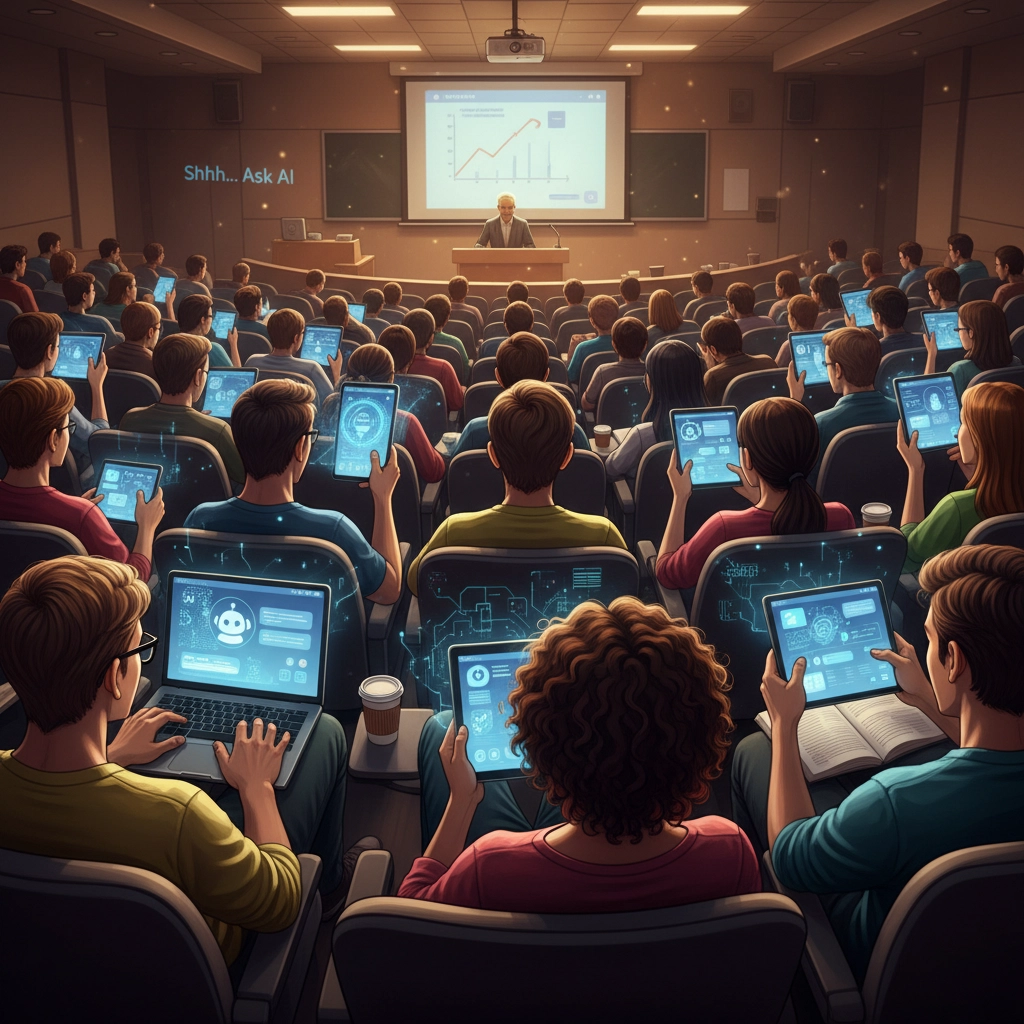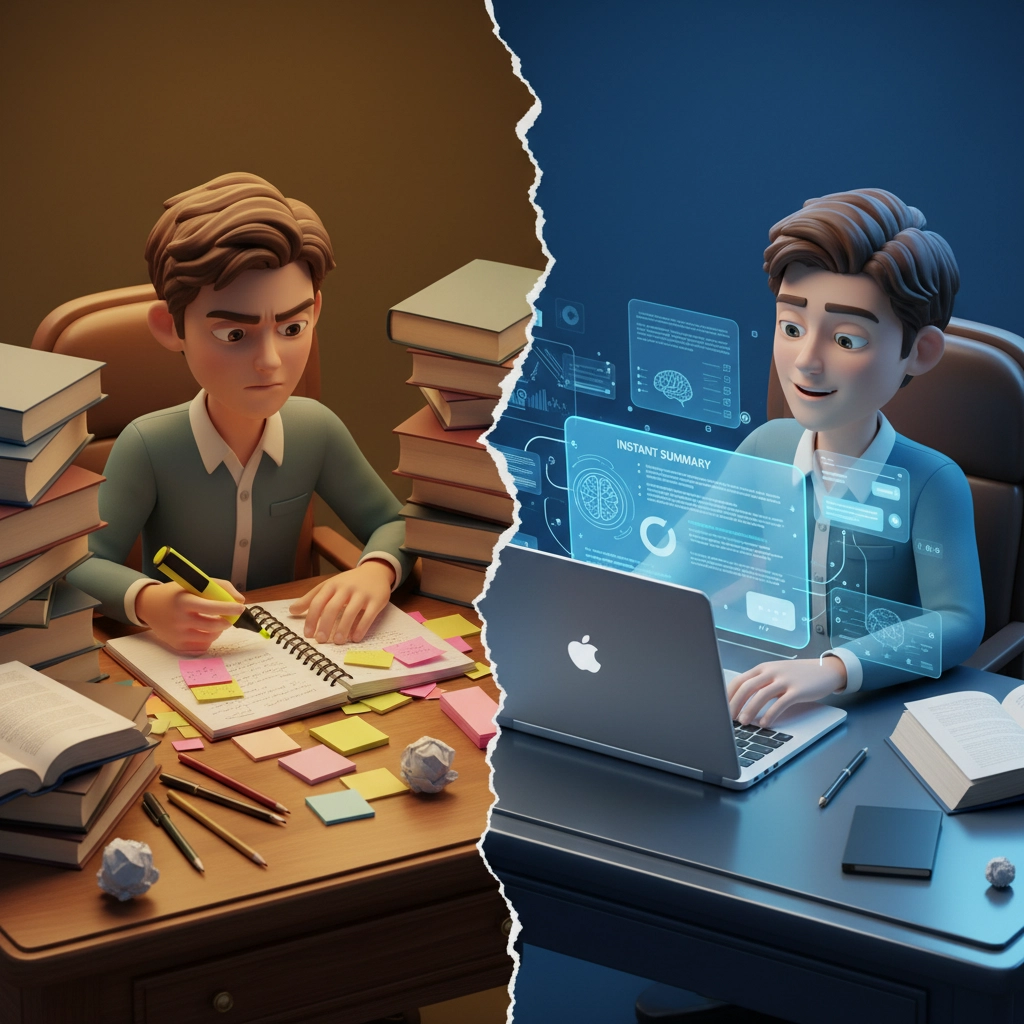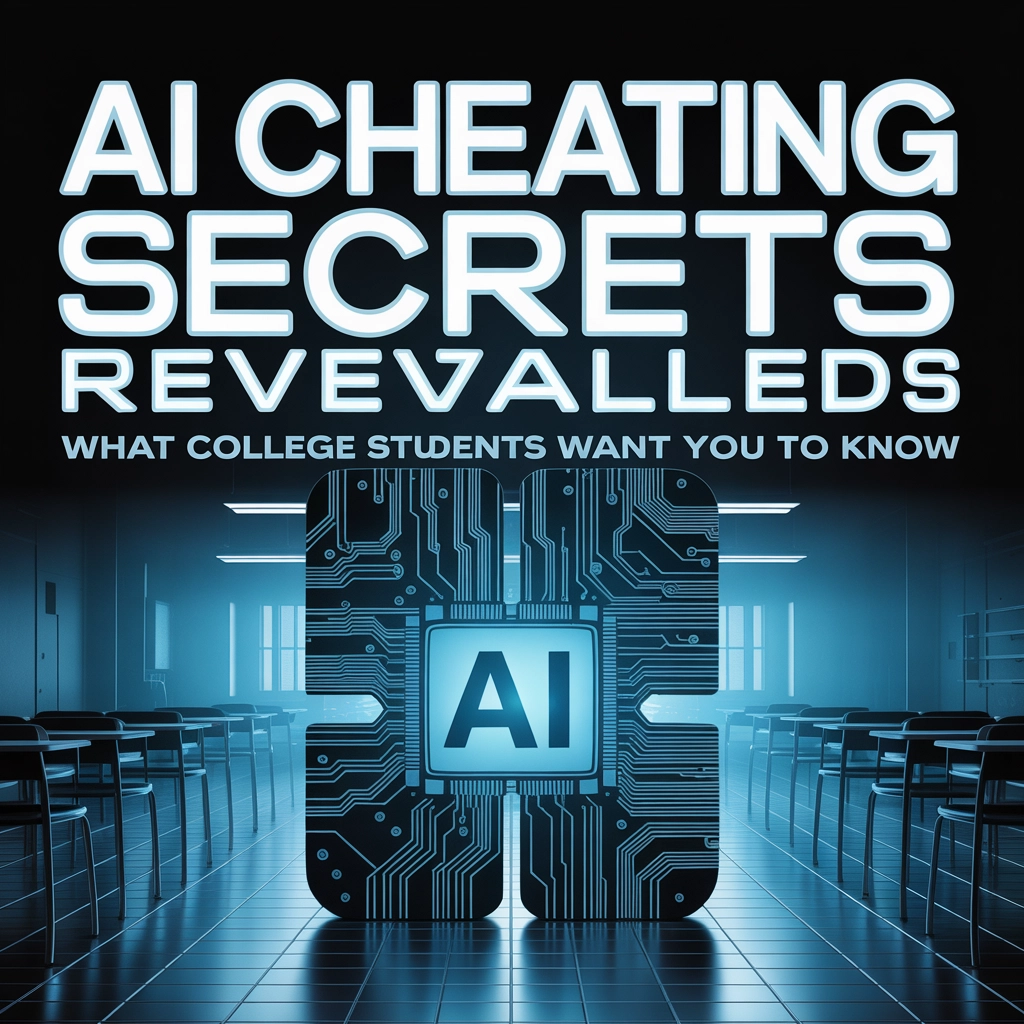Here's something that'll blow your mind: nearly every college student is using AI right now. We're not talking about the obvious ChatGPT essay writers, this goes way deeper.
What's really happening behind closed dorm doors would surprise most parents and professors. Students aren't just copying and pasting AI responses anymore. They've gotten sophisticated, strategic, and honestly? Pretty creative with how they're bending the rules.
The Numbers Don't Lie: Everyone's Doing It
Nearly 100% of college students use AI in some capacity today. Yeah, you read that right. But here's where it gets interesting: almost half of K-12 students and teachers are already using AI tools too. This isn't some underground movement. It's mainstream.
Major AI companies aren't stupid. They're actively marketing their tools toward students because they know where the demand is. There are entire apps, websites, and services built specifically to help students use AI to pass classes.

But why? What's driving this massive shift? The answer isn't what most people think.
The Real Reasons Students Turn to AI (Hint: It's Not Laziness)
Everyone assumes students cheat because they're lazy. Wrong. Here's what the data actually shows about why students use AI to violate academic integrity:
- 37% say it's pressure to get good grades (the top reason by far)
- 27% cite time constraints (work, family, other obligations)
- 26% simply don't care about academic integrity policies
The motivations split along interesting lines too. Adult learners over 25? They're stressed about time management and juggling responsibilities. Younger students? They're more likely to just not connect with course content or openly admit they don't care about the rules.
Here's a story that perfectly captures this. Sarah, a sophomore at a state university, works 25 hours a week at Target while taking 18 credit hours. She's pre-med, which means her GPA can't drop below a 3.7 if she wants any shot at medical school. When her European History professor assigns three 20-page reading assignments in one week, Sarah doesn't even hesitate. She feeds the PDFs into Claude and asks it to create "concise bullet points" of the key arguments.
Is Sarah lazy? Or is she making calculated decisions about where to spend her limited time and mental energy?
How Students Actually Game the System
Forget the stereotype of kids copy-pasting ChatGPT responses. Today's AI-assisted students are way more sophisticated than that.
They're not just asking AI to write their papers. They're using it to transform reading assignments into digestible summaries, letting them skip the actual intellectual work of engaging with primary sources. They still show up to class discussions, still participate, still turn in assignments. They've just outsourced the grunt work.
Students have also figured out detection workarounds. They know professors are trying sneaky tactics like adding extra words to assignments to trick AI systems. So they've adapted. Some are going back to handwritten blue book exams, but even then, students prep using AI-generated study guides.

The most telling part? Students understand they're breaking rules. Only 6% blame "unclear policies" for their AI use. They know exactly what they're doing: they just think the benefits outweigh the risks.
The Institutions Are Playing Catch-Up (And Losing)
Here's where things get really interesting. 97% of students think their schools should respond to AI cheating threats. But they hate every solution their institutions propose.
Students reject AI-detection software. They don't want technology restrictions in classrooms. Only 22% support returning to handwritten tests (though this jumps to 33% at private schools). There's slightly more support for oral exams and in-class essays, but not by much.
Schools are stuck. They're trying to police their way out of a technological revolution, and it's not working. Students are always going to be one step ahead because they're the ones living with these tools 24/7.

The Plot Twist: Maybe We're Overreacting
Stanford researchers dropped a bombshell that challenges everything we think we know about AI cheating. Their ongoing study of high school students before and after ChatGPT's release? It hasn't shown the dramatic increases in cheating that media coverage suggests.
Their conclusion: when students cheat, it's usually for reasons that have nothing to do with technology access. AI is just the latest tool: it's not creating new cheaters, just giving existing ones better options.
This research suggests something uncomfortable for educators: maybe the problem isn't AI. Maybe it's how we're teaching and what we're asking students to do.
What This Really Means for Education
The AI cheating phenomenon has forced a reckoning. Are we testing memorization in an age when information is instantly accessible? Are we assigning busywork that students rightfully see as pointless?
Some educators are flipping the script entirely. Instead of fighting AI, they're redesigning courses to make AI assistance either irrelevant or transparently integrated. They're focusing on critical thinking, analysis, and application rather than information regurgitation.
Students have also gotten good at what researchers call "neutralizing": moral justifications that let them view their specific AI use as different from "real" cheating. It's psychological distance that makes rule-breaking feel more acceptable.
The truth is, we're witnessing a fundamental shift in how learning happens. Students aren't necessarily becoming less ethical: they're adapting to tools that didn't exist when current academic policies were written.
The question isn't whether AI cheating is good or bad. It's happening, and it's not going away. The real question is whether educational institutions will adapt fast enough to stay relevant, or if they'll keep fighting a war they can't win while students continue finding workarounds.
So here's what I'm wondering: in a world where AI can handle most routine academic tasks, what should college actually be teaching students?







